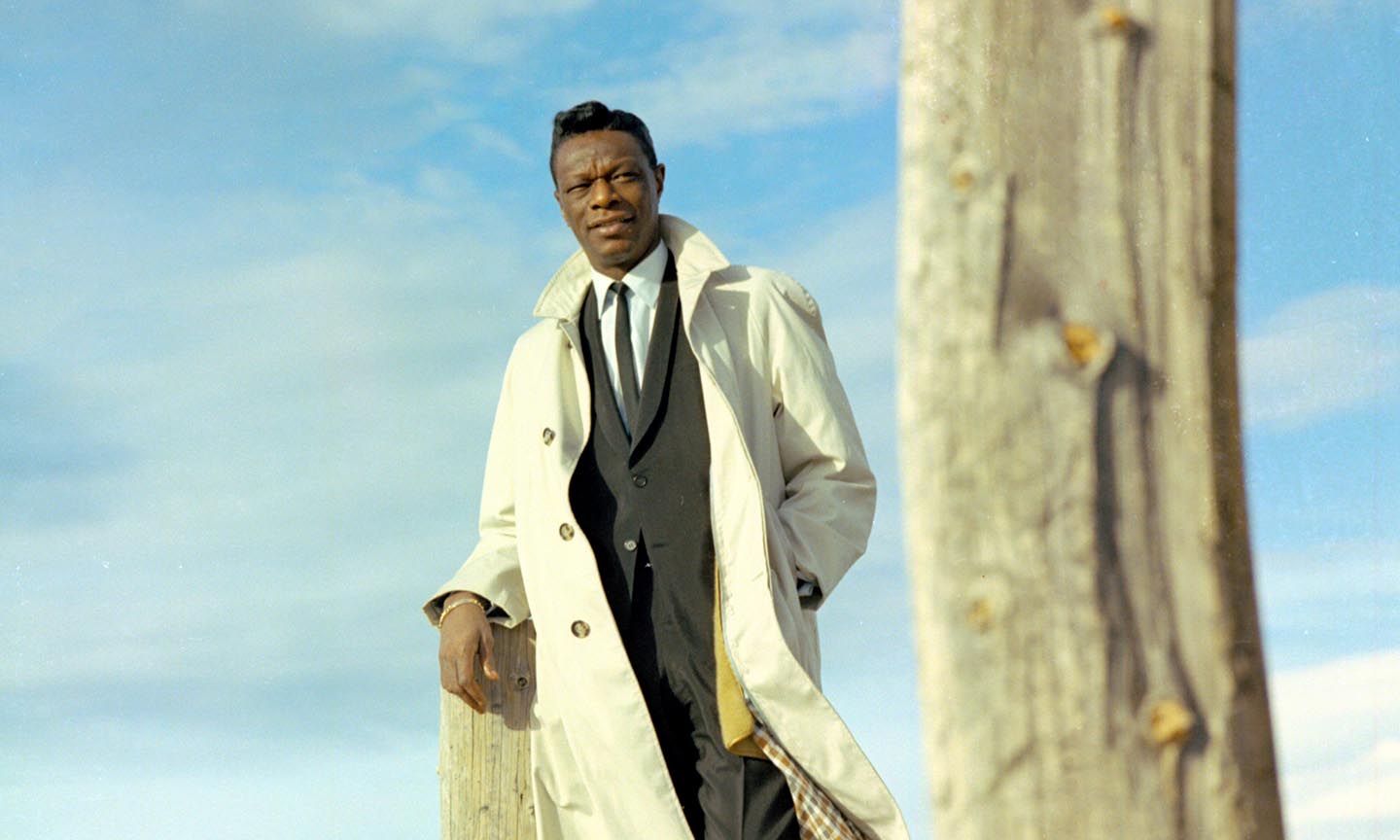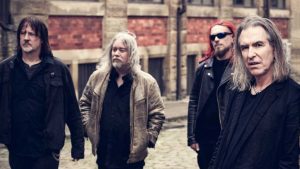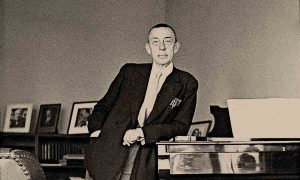In 1948, an undeniably strange song written by a proto-hippie who slept under L.A.’s Hollywood sign had a massive impact on mainstream America (not to mention the rest of the world). The story behind Nat “King” Cole’s ground-shaking recording of Eden Ahbez’s “Nature Boy” encompasses American racism, German bohemians, labor union politics, and more.
Nat “King” Cole spent most of the 1940s as the smooth-crooning, piano-tinkling epitome of cool, leading his trio (including guitarist Oscar Moore and bassist Johnny Miller) through a long string of jazzy tunes that became big R&B hits and sometimes crossed over to the pop charts. But with one exception, those crossovers were gently swinging tracks delivered strictly in the three-man format.
Listen to Nat ‘King’ Cole’s “Nature Boy” now.
One day in 1947, when Cole was gigging at L.A.’s Lincoln Theater, a curious figure turned up – a thirtysomething man with an overgrown beard and shoulder-length hair. The arrival of the hippie was still three decades away; nobody in America looked like that. Not even in L.A. Well, almost nobody.
Starting around the turn of the century, a gaggle of German iconoclasts involved with a wing of the Lebensreform (“life reform”) movement ultimately dubbed Naturmenschen (“natural people”) began immigrating to California. They followed a philosophy of organic eating, communal living, and an anti-industrial, nonmaterialistic lifestyle. They were returning to the garden way ahead of the Woodstock generation.
An itinerant pianist/songwriter born George Aberle in Brooklyn in 1908 came into their fold in the early ‘40s, by which time the group was colloquially known as the Nature Boys. He renamed himself eden ahbez. His song “Nature Boy” was reportedly written partly about himself and partly about William Pester, one of the movement’s key figures.
The song’s mysterious-sounding, minor-key melody bore an Eastern vibe, which tracked with ahbez’s interest in Eastern spirituality. The lyrics didn’t detail the Nature Boys’ agenda, though. They focused instead on the wanderings of a “very strange, enchanted boy” in search of truth and love, ultimately imparting the wisdom that “the greatest thing you’ll ever learn is just to love and be loved in return.”
The recording and release
Having brought the song’s sheet music to the Lincoln Theater to slip it to Cole, ahbez got as far as the singer’s valet, Otis Pollard. Fortunately Pollard passed it to his boss, who loved it enough to record it that August. But ahbez had left no contact info. And how could he? He had none. Luckily, a cohort of Cole’s eventually located the peripatetic mystery man making camp under the letters of the legendary Hollywood sign.
Meanwhile, Capitol Records wasn’t crazy about the offbeat, oblong tune, which didn’t even have a chorus. On top of that, Cole had gone against Capitol’s wishes by insisting on adding orchestration to the track, conducted by Frank De Vol (later famous for writing sitcom themes like “My Three Sons” and “The Brady Bunch”).
Capitol declined to release the song. But they relented out of desperation the following year, when a musicians’ union recording ban retaliating against the union-trammeling Taft-Hartley Act led to a lack of new records. Much to the label’s surprise, “Nature Boy” went all the way to No. 1.
The record became a full-blown phenomenon. Instead of being alienated by its oddness, the public was drawn in. The tune also gave Cole’s career a turbo-charged boost. He’d landed a couple of major pop hits before (“The Christmas Song, “For Sentimental Reasons”), but “Nature Boy” completed the hat trick and put him definitively over the top as a bona fide pop star.
Nonetheless, Black pop stars were far from the norm at the time. When Cole performed his bewitching hit on TV, he was forced to protect the fragile sensibilities of white audiences by cosmetically lightening his skin. Cole was joined on the program by the elusive ahbez himself, who read from a script he may or may not have written, “‘Nature Boy’ is really the story of my life. I was born with a love for nature and a desire to find God. Finally, I came to look for nature as a great symphony, and upon love as the theme of that symphony.” Of his exponentially increased income, he said, “All the money in the world could not give me the things I already have. Anne [his wife] and I have learned that nature and a simple life will bring you peace and happiness. We sleep on the ground in sleeping bags in the California mountains and deserts.”
The legacy and influence of “Nature Boy”
“Nature Boy” became a genre- and era-transcending standard. It’s been covered by a wildly eclectic array of artists, including Big Star, John Coltrane, David Bowie, Tony Bennett & Lady Gaga, Aaron Neville, Celine Dion, George Benson, and countless others.
It even inspired a Beatles classic. In Barry Miles’ official Paul McCartney biography, Many Years from Now, Macca explains that he “always loved the song called ‘Nature Boy’; ‘There was a boy/A very strange enchanted boy…’ He loves nature, and ‘Mother Nature’s Son’ was inspired by that song.”
And Otis Pollard – without whom none of the above would ever have happened – made out okay too. True to ahbez’s materialism-shunning ways, the richly remunerated songwriter transferred 25 percent of all “Nature Boy” royalties to Cole’s valet.




